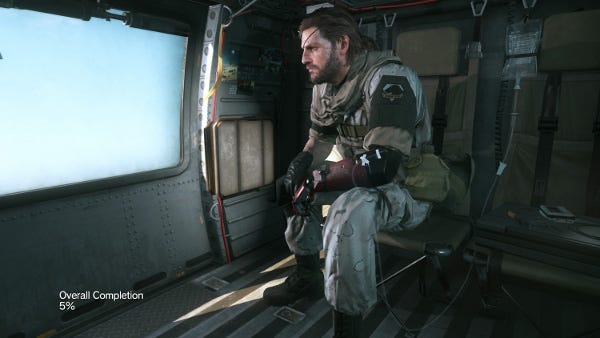Trending
Opinion: How will Project 2025 impact game developers?
The Heritage Foundation's manifesto for the possible next administration could do great harm to many, including large portions of the game development community.

Featured Blog | This community-written post highlights the best of what the game industry has to offer. Read more like it on the Game Developer Blogs or learn how to Submit Your Own Blog Post
Why are some games better than others at getting us to just keep playing without taking a break?

[Jamie Madigan writes, podcasts, and lectures about the overlap between psychology and video games over at www.psychologyofgames.com.]
I was recently working through my backlog of things I had filed away to read/watch and I came across this presentation given by Nils Pihl at GDC China in 2013. There's a lot of good stuff in there, but one new concept stuck out to me. Pihl, whose company Mention LLC consults with game developers, calls it "Newtonian engagement."
The name is in reference to Isaac Newton's first law of motion, which essentially states that when an object is set in motion, it will continue that motion until acted upon by an outside force. Fling something into the vacuum of space and it'll keep going in a line until it gets caught up in an external force like gravity or some astronaut's face. Bending the idea so that it can be turned to game design, Pihl says that "An engaged player will remain engaged until acted upon by an outside force." Once we're engaged, we keep playing until someone calls us to dinner or the clock tells us it's time to go to work. This triggers what Pihl calls a re-evaluation point. We pause to think, "Should I keep playing, or do something else?" You may be aware of the decision you're making, or it may happen subconsciously.

The insight I thought was interesting was that it's often the game that provides the player with new information to trigger a re-evaluation point. When you liberate a tower in Assassin's Creed or peruse a bounty board in The Witcher 3, the games flood you with new information about side quests and points of interest. Faced with this new information --and the fact that you just finished the task you had been engaged in-- you now have to pause and consider what to do next. This is a re-evaluation point, and we often decide right then to take a break or go to bed or get something to eat. (Pihl goes into much more detail about the sub-steps that happen at every re-evaluation point and how game developers can use this information to shape players' perceptions and behavior. Watch the video to get that.)
Some games are much worse at avoiding these re-evaluation points than others. Take Metal Gear Solid V, for example. Whenever you finish a mission in that game, you typically have to exit the battlefield and hop on a helicopter, which takes you into a kind of holding area. You then have to navigate a couple of menus, check on your upgrade research and base developments, select the next mission, listen to briefing, go through several more menues to select your loadouts, sit through a loading screen disguised as a helicopter ride, and then finally get to the next mission. All that stuff breaks up any Newtonian engagement you might have and give you an opportunity to think about what to do next.

Now consider another game like Shadow of Mordor. Instead of being broken up into chunks of missions and quests like Destiny is, the game simply has objectives that flow naturally into one another. If you try and tackle a stealth kill objective and fail, the game world just continues on and so do you. There's a smaller chance of a re-evaluation point happening because your engagement with the game doesn't hit a brick wall in the form of a "Mission Failed!" screen, a "Press A to try again" option. The player's attention just flows to the next nearby thing in the game world, which might be the waypoint to retry the stealth mission or it might be the arrival of an orcish nemesis. Same thing happens if you succeed in that stealth mission. No backing out through a bunch of menues and hub areas to pick a new objective.
The point is that if a developer wants a game to be engaging, it succeeds more to the extent that it removes such roadblocks and lets our engagement travel in a straight line from one event to another.
[Jamie Madigan writes, podcasts, and lectures about the overlap between psychology and video games over at www.psychologyofgames.com.]
Read more about:
Featured BlogsYou May Also Like